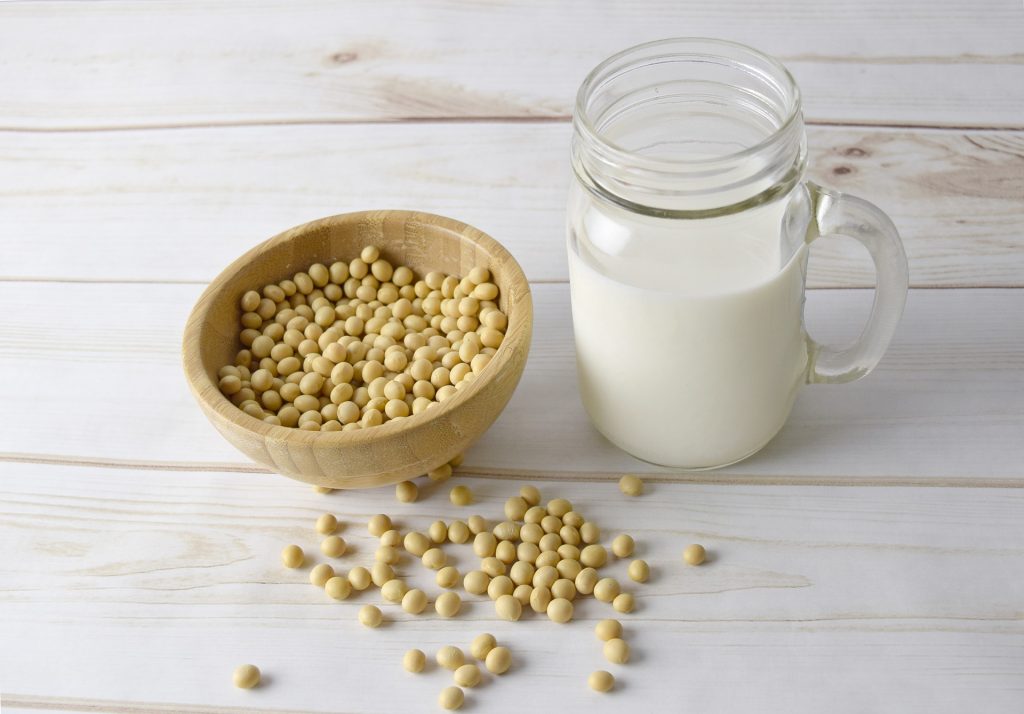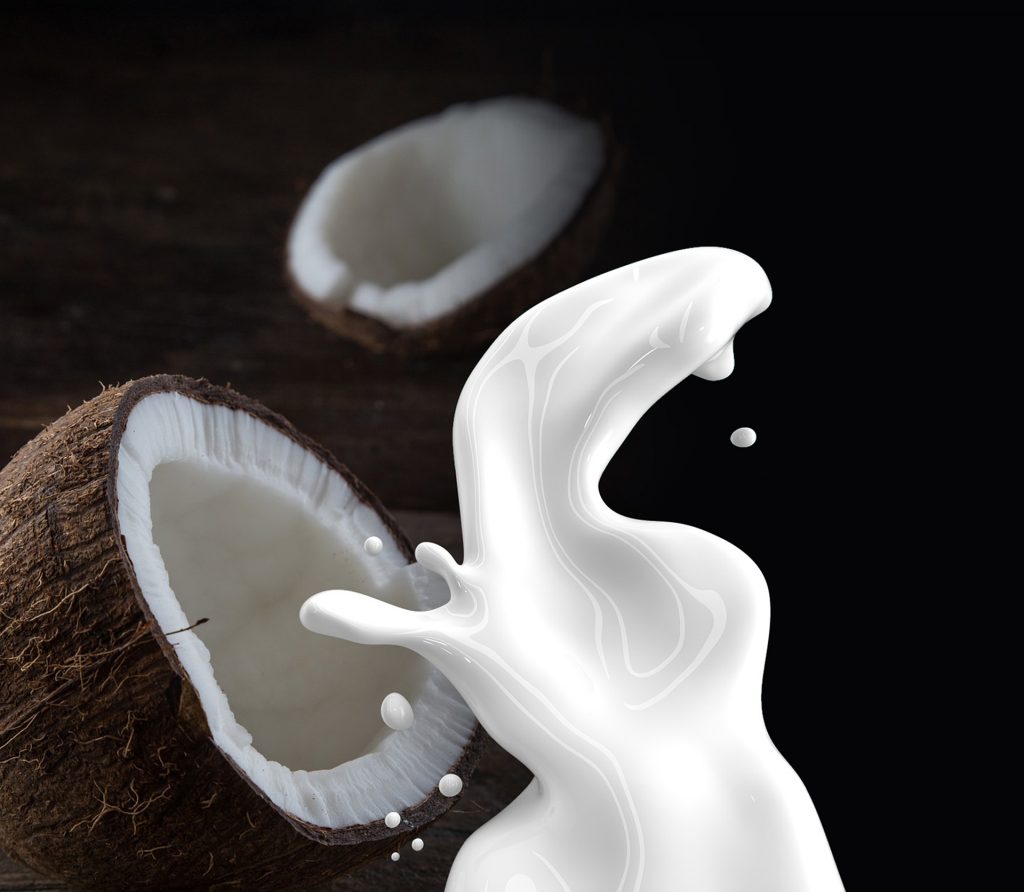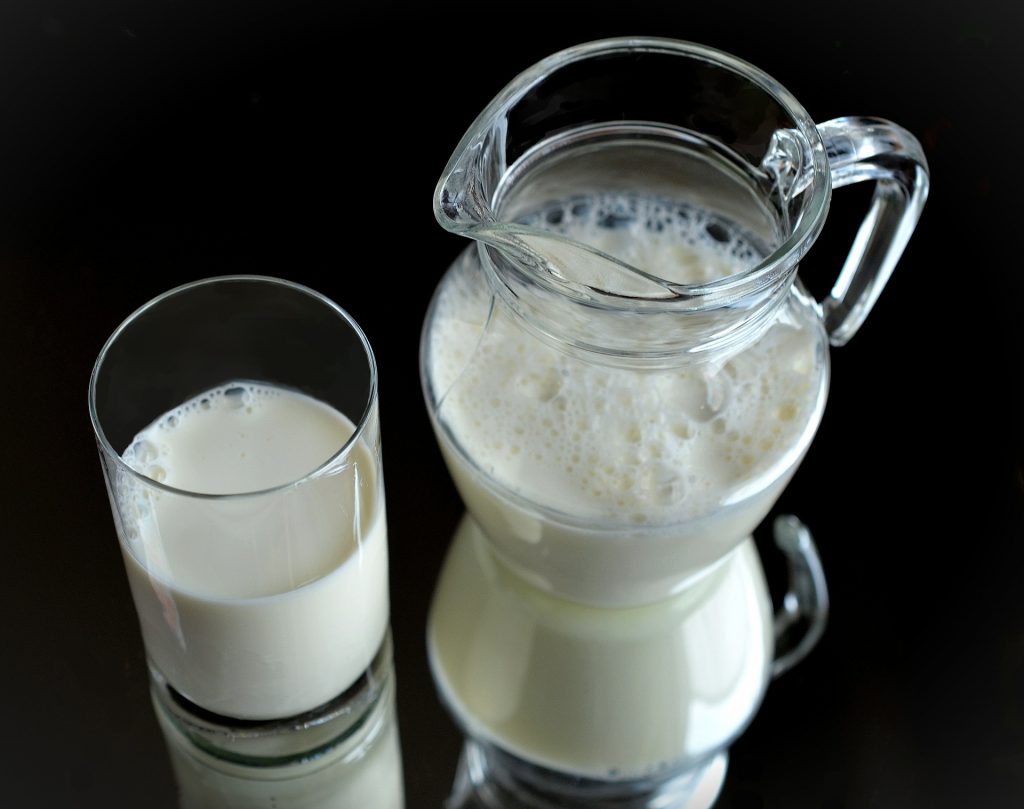Different types of plant milks seem to be a popular trend these days. Everyone seems to be on some sort of health craze, trying to avoid drinking regular cow’s milk and adopting plant milk substitutes like soy or almond milk. Around 65% of adults all over the world are lactose intolerant which means their bodies cannot produce lactase, the enzyme needed to digest milk sugar (lactose). Plant milks are therefore available as an alternative to those individuals. Furthermore, even if they are not lactose intolerant, some people still choose plant milk for ethical reasons. The dairy industry is plagued with horror stories where the animal’s well-being is often taken for granted.
Let’s have a look at the common plant milks readily available at the grocery store.
Soymilk
Soymilk is the original plant milk, made from soy beans. The beans are soaked, pressed and filtered to make the cloudy soymilk suspension that mimics the consistency of regular milk. Soymilk contains a large amount of high-quality plant based proteins, has more fiber than regular milk and has a plethora of natural vitamins (A & D) and minerals. Make sure to go organic with soymilk and favor brands produced from whole organic soy beans as they do not contains any herbicides or other chemicals.

Almond milk
You can make your own homemade almond milk with ground almonds and water but the commercial versions are heavily processed. In fact, most commercial brands of almond milk have a very low percentage of almond, while the rest of the milky texture comes from the addition of preservatives, thickening agents and stabilizers.
Commercial almond milk has a high sugar content to disguise a lack of natural taste. Pure almond milk contains far fewer calories than a cup of cow’s milk, is naturally rich in vitamin E (antioxidant), very low in proteins. For this reason, commercial almond milk often ends up being fortified with vitamin D and Calcium when processed industrially.
Coconut milk
Coconut milk has been used for thousands of years by Asians in cooking. The milk is made by grinding and filtering the fleshy part of the mature coconut. Pure coconut milk is rich in a combination of saturated and unsaturated fats, with as much as 57g of fat per 240g serving. The milk can be part of a healthy plant-based diet, as such studies show it benefits people with normal to high cholesterol levels.

Cashew milk
Made with water and cashew nuts, cashew milk is loaded with healthy fats, protein, vitamins and minerals. Cashew milk’s unsaturated fats lowers the risk of heart disease and its vitamin K content greatly helps in blood clotting. Cashews are rich in copper which improves skin health by boosting the production of collagen in the body. To reap the benefits of cashew milk, it is better to consume it as home-made rather than a store-bought type as commercial cashew milk usually contains less of the beneficial fats.
Hazelnut milk
Hazelnut milk is slightly more caloric than other nuts milk but doesn’t contain as much protein. It does contain fiber which aids digestion and lowers cholesterol, and it’s nutty flavor pairs well to coffee.
Rice milk
Rice milk is more recent addition to the milk repertoire. Unlike coconut milk it is very low in fats and unlike soymilk it is low in protein. However, rice milk is rich in carbohydrates, making it a great source of energy. As an added bonus, rice milk is the least allergenic of all milk substitutes and a great product for people who are lactose intolerant or prone to food allergies. However, if you are diabetic and need to keep a close eye to your carbohydrate intake, you would be better off avoiding rice milk.
Oat milk
Oats are soaked in water, blended and the milk is squeezed out with a cheese cloth. Similar to rice milk, oat milk is ideal for those who are lactose intolerant and allergic to nuts. Oat milk has less proteins than cow’s milk but more than nut milks. It also contains more fiber than cow and nut milks.
Quinoa milk
Quinoa milk contains more fiber and protein than other grains. It is also rich in iron, zinc and magnesium. Quinoa milk is therefore an excellent protein source for vegans and vegetarians with all its essential amino acids needed for the synthesis of hormones and neurotransmitters.
If you are contemplating switching to plant-based milks, make sure you carefully read the nutritional content of any cow’s milk alternative in order to properly balance and compensate for your daily requirements. Pay close attention to the sugar content when opting for plant milks as commercial brands often add additional ingredients for a better taste and texture, which do not necessarily adhere to a healthy diet. If you enjoy putting milk in your tea or coffee, get to experiment with the different plant milks above and comment below about your preferences!



